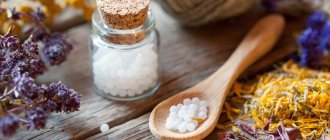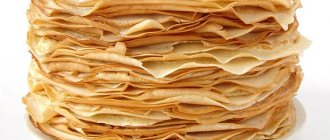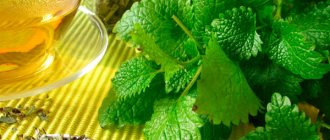The birth of a child is always a joy. But then there is a lot of excitement and anxiety associated with it. One of them is the mother's nutrition. And although breastfeeding is not a disease, the diet must be carefully selected and balanced. Some products are prohibited or allowed in small quantities. And therefore, many lovers ask whether cream can be used while breastfeeding. The answer to this is highly controversial and requires the right approach.
Composition of the drink "Snowball"
The fermented milk drink “Snowball” is produced using a special technology that has not changed since the 70s of the last century. The product contains milk and starter from a pure culture of microorganisms. Additives in the drink include sugar or fruit syrups. The starter consists of thermophilic streptococcus and Bulgarian bacillus.
The shelf life of the product is from 5 to 7 days, since it contains no artificial preservatives. Preservation is ensured by a special method of preparation, mowing at certain temperatures, and cooling in the required mode.
The beneficial qualities of fermented milk drink are provided by its composition:
- a high content of B vitamins is recommended for hormonal disorders in the female body;
- vitamin E (a powerful antioxidant) weakens the negative impact of an unfavorable environment on the body;
- magnesium – reduces stress, stabilizes blood pressure, eliminates constipation, normalizes kidney function;
- calcium – ensures normal blood clotting, strengthens the nervous system, strengthens tooth enamel, bone and cartilage tissue;
- sodium – needed for normal brain function, helps with muscle spasms, convulsions;
- phosphorus – stimulates memory development, increased attention, helps maintain teeth in good condition, ensures strong bone tissue;
- potassium – regulates blood pressure, helps supply brain cells with oxygen, removes toxins, poisons, waste;
- promotes weight loss;
- increases milk production, improves its quality;
- regulates metabolic processes;
- reduces the accumulation of intestinal gases in the mother and colic in the baby;
- the bacteria content helps normalize the functioning of the digestive system;
- increases appetite;
- stimulates food digestion;
- The high content of vitamins A and E helps restore the body after childbirth, physical activity, and illness.
Fermented milk products differ in the method of fermentation. For a nursing woman, lactic acid fermented drinks are better suited - fermented baked milk, yogurt, Snezhok, yogurt, Varenets, acidophilus milk.
It is not advisable to consume mixed fermentation drinks - kefir, kumiss - during lactation. For their preparation, the method of alcoholic fermentation is used, as a result the products contain a small amount of alcohol.
Inclusion in baby food
Attention! Fermented milk appears on the baby's table at the age of 8-9 months, when the digestive and enzyme systems, as well as the kidneys, have reached sufficient maturity.
The first dairy dish a child is introduced to is cottage cheese. Low acidity and delicate consistency do not irritate the lining of the stomach and intestines. The product is rich in:
- easily digestible protein;
- calcium;
- phosphorus and vitamins.
Complementary feeding starts with half a teaspoon. The daily intake of cottage cheese at 9 months is 50 g. Also at this age, kefir (20-30 ml) appears on the children's menu. Gradually the amount of healthy drink is increased to 200 ml. Necessary for normal functioning of the gastrointestinal tract, strengthens the immune system.
Children are given special children's kefir. At 8 months, babies try baby yogurt. Starting from 20-30 ml, the amount of the gentle drink is increased to 100 ml by year.
Time of introduction into the diet
Fermented milk products are actively introduced into the menu of nursing mothers. They help in milk production. For example, natural yoghurts are allowed within two weeks after the start of feeding. But “Snowball” is recommended to be included in the diet only 3 months after the birth of the baby. This is due to the presence of sugar in the product.
Previously, for example, in the first month after birth, it is not recommended to use “Snowball” due to the high risk of an allergic reaction in a small child. This especially applies to products with the addition of fruit syrup instead of regular sugar.
When and in what quantities can you consume fermented milk products?
| Product | Daily norm | When can it be added to the diet? |
| Ryazhenka/yogurt | 200–350 ml | At 8–12 weeks of lactation |
| Cottage cheese | 100–140 g | From the 2nd week of lactation |
| Sour cream | 10–30 g | From 3-4 weeks of lactation |
| Kefir | Up to 0.5 l | 8-10 months after birth |
| Yogurt | 250–500 ml | From the 2nd week of lactation |
Rules for introducing a new product
Each subsequent product on the menu must be introduced carefully so as not to cause a negative reaction from the baby. Expanding the diet of a nursing mother must be carried out constantly. She needs a lot of good, high-quality products to strengthen her strength and produce the required volume of milk.
Thanks to simple rules for introducing a new product to the menu, you can avoid unpleasant consequences:
- Only one new product needs to be introduced to determine exactly what the baby has a negative reaction to;
- the baby should be healthy, have no problems with the tummy or teeth - this is the best time for a new item on the menu;
- The mother eats most foods in the morning, so that she can watch the baby all day. It is better to drink “Snowball” in the afternoon, so calcium will be absorbed better.
- The first portion should be very small; the nursing mother eats it immediately after feeding. This way, only a small amount of new substances will pass into breast milk.
- There is no need to stock up in the refrigerator; it is better to buy fresh product for a nursing mother.
Negative manifestations can be of two types - on the skin (redness, rash) and from the digestive system (diarrhea, constipation). If the first attempt was unsuccessful, you can try a second time only after a month.
Useful properties of fermented milk products
A mother's nutrition during breastfeeding plays a vital role in the quality of breast milk and the development of the baby.
Fermented milk products normalize metabolism.
“Sour milk” has amazing properties to strengthen the body:
- Normalize metabolism and burn extra pounds.
- Relieves a newborn from gas, colic and bloating.
- Strengthen the immune system.
- Reduce the risk of contracting a viral or infectious disease.
- Increase and stabilize lactation.
- Strengthens the entire digestive system.
- Saturate the body with calcium.
- Removes toxins from the body.
However, dairy products will have a beneficial effect on mother and baby only if you eat in moderation and do not allow yourself to overeat.
Possible harm to the newborn
When consuming fermented milk products, there is a possibility that your child will develop allergy symptoms.
Excessive consumption of fermented milk products can lead to colic.
In cases where the newborn’s body is predisposed to allergies, even a moderate amount of dairy products consumed can be harmful. To avoid this, it is necessary to gradually introduce new food into the diet and observe the baby’s reactions.
Excessive consumption of “sour milk” by the mother of a baby who is not prone to allergies can lead to a deterioration in the baby’s well-being : gases, colic, stool problems, and disruptions in the gastrointestinal tract may appear.
Consumption rate
The first portion of “Snowball” should be only 2 large spoons. Then the baby’s condition is monitored for 24 hours. If there are no negative effects on the introduction of a new product, then you can drink one glass of fermented milk drink per day. You can drink this drink 2-3 times a week.
How to choose a quality product in a store
Fermented milk products are produced using different technologies, but Snezhok is famous for the fact that it has preserved the recipe from Soviet times.
Before purchasing, you need to read its composition. It’s good if the sourdough contains a Bulgarian stick. This beneficial microorganism suppresses the spread of putrefactive microflora in the digestive system. Thanks to its special structure, the Bulgarian bacillus is tightly attached to the intestinal wall and stays in the body for a long time, which allows it to bring more benefits.
The packaging may indicate that the product is tank or thermostatic. These cooking methods do not affect the quality. Reservoir technology is older. The product is first manufactured and then packaged. The thermostatic method of preparation is new; with it, ripening will occur already in the container into which all the ingredients are poured. With this method, the contents of small clots are allowed, which dissolve when stirred. But there should be no delamination of the Snezhka; this indicates a violation of the technological process.
The price of a high-quality “Snowball” will be approximately 40 rubles per 500 ml. A cheaper product indicates low-quality raw materials for preparation. No preservatives are required for storage. All production takes place under sterile conditions, which allows the product to be stored for 14 days without chemical additives.
conclusions
Fermented milk products improve the digestive system.
“ Sour milk ” is the basis of nutrition for the expectant mother, because it is fermented milk products that improve the digestive system, strengthen bones, teeth, hair and nails, burn excess weight, relieve pain and lift your spirits. the main thing is compliance with measures and quality.
When should you refuse?
In some cases, fermented milk products are not recommended for consumption. If a nursing woman has had digestive problems (peptic ulcer of the stomach or duodenum), you need to carefully consume drinks such as “Snowball”. Gastroenterologists recommend not drinking them on an empty stomach, and not eating them with fresh fruits, which cause increased gas formation:
- grape;
- apples;
- pears;
- peaches.
For liver problems, consume fermented milk products after consulting a doctor.
The diet of a nursing mother is expanded from the first month due to some fermented milk drinks. 3 months after birth, a woman can include “Snowball” in her menu. Its beneficial properties will be an excellent addition to nutrition during lactation.
Prohibited fermented milk products
There is no strict prohibition, but caution is a must.
Drinks such as tan, kumis or ayran emit a certain amount of gases during fermentation and the percentage of alcohol in them is more significant compared to kefir.
Glazed curds are a prohibited product.
Prohibited products include:
- Fat cottage cheese (18-20%).
- Glazed curds.
- Sour cream with fat content from 20%.
- Fruit yoghurts.
- Fermented milk drinks made more than 3 days ago.











